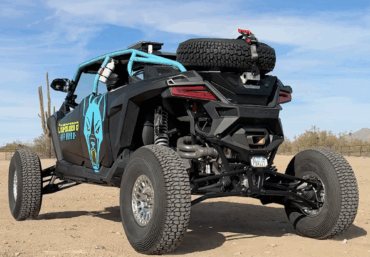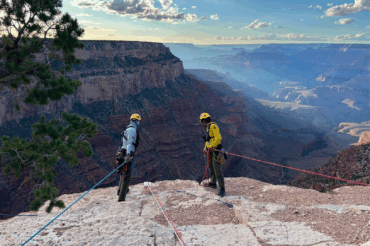New U.S. Federal laws for crowdfunding go into effect this month that will give outdoor startups (or any business) and enthusiasts “ownership” options.

SEC filings and Congressional Acts rarely have a place in the world of adventure and outdoor gear. But a small provision of the 2012 Jumpstart Our Business Startups (JOBS) Act that takes effect next week (May 16th) is a potential boon for inventors and gear junkies alike.
We got wind of the news via SlingFin, a tent and gear brand based in the Bay Area lining up to be one of the first to lean on the new law.
Title III, which passed through the SEC last October, will break down established investment barriers, namely that only accredited investors – those earning at least $200,000 a year or with a net worth of a cool $1 million – are permitted to invest in a “crowd equity” offering.
‘Democratizing Investing’
This means that you, Joe and Flo Schmoe, can now bet the farm, or a hundred bucks, on the next GoPro or the Oculus Rift (which raised nearly $2.5 million on Kickstarter). It also means that as an inventor, you won’t have to woo venture capitalists or investment banks and remain beholden to corporate shareholders.
SlingFin notes that “gear nerds, outdoor enthusiasts, family and friends will be able to invest amounts as small as $100 in a ‘Kickstarter-with-equity’ model where many small investments add up.”

The relaxed regulations are an effort by the federal government to continue to incentivize and stimulate small business growth in the wake of the recession of 2008. As is typically the case, the internet outpaced regulatory efforts with sites like Kickstarter and IndieGogo going viral and amassing fortunes almost overnight.
The SEC’s move aims to make raising capital for small startups, whose product or mission might not interest venture capitalists, easier, while also responding to a consumer demand for equity stake in a small business, rather than a free T-shirt.
According to a statement from SEC Chair Mary Jo White, “There is a great deal of enthusiasm in the marketplace for crowdfunding, and I believe these rules and proposed amendments provide smaller companies with innovative ways to raise capital and give investors the protections they need.”
The new investment opportunities could mean more growth in the outdoor industry, which experienced stunning levels of innovation through traditional crowdfunding sites (think, Flying Tent, the million-dollar skillet, and jet-propelled paddleboards, to name just a few).
That said, both investors and startups are reminded on the Wefunder website that the risks of equity crowdfunding make it different than the relative safety of Kickstarter and IndieGogo: “If you can’t afford to wait seven-plus years for a return,” the company warns, equity investment is not for you. “It’s safer to think of an equity investment more like a lottery ticket that might pay off in the very long term.”
SlingFin Looking For Investors
SlingFin, which launched in 2010, intends to be one of the first companies featured on WeFunder – a crowdfunding platform embracing the upcoming marketplace of small investors – following the upcoming law change.
“We are very excited for the law change,” said company PR spokeswoman Paige Boucher. “We see this as a trend that should bring a new surge of entrepreneurship to America and the Outdoor Industry.”
The company will also offer tiered benefits in addition to equity stake – what it calls “premiums” – a somewhat hybrid model of traditional investing and popular crowdfunding perks it hopes will target potential investors who believe in its product.
“The premiums are the secret sauce that align investor interests with those of the internal SlingFin crew,” the company said.
Several crowdfunding sites offer equity models that will be affected by the new regulations: Wefunder, AngelList, and EquityNet.
There are a number of rules surrounding investment limits and minimums that you should know before you invest. Check Investopedia, Wefunder, and the SEC’s explainer page for more info.







